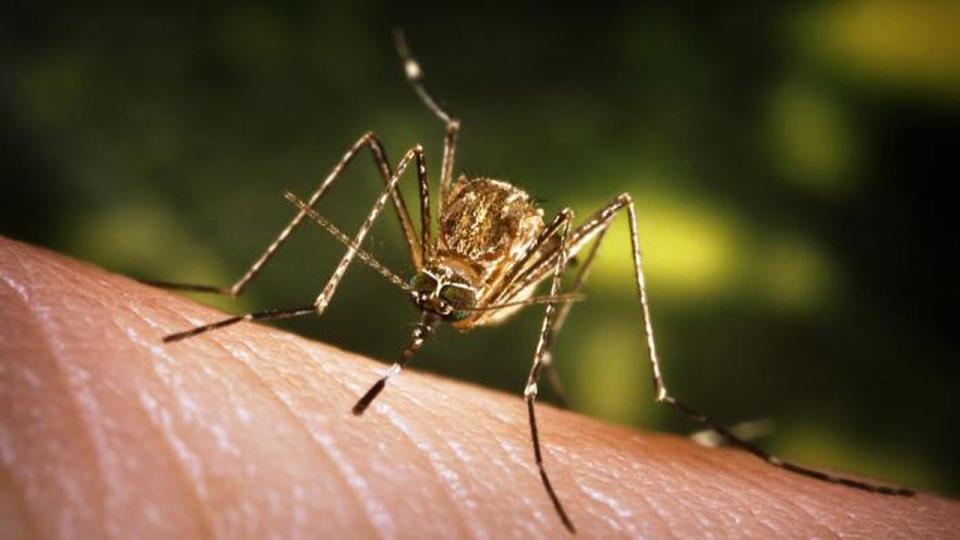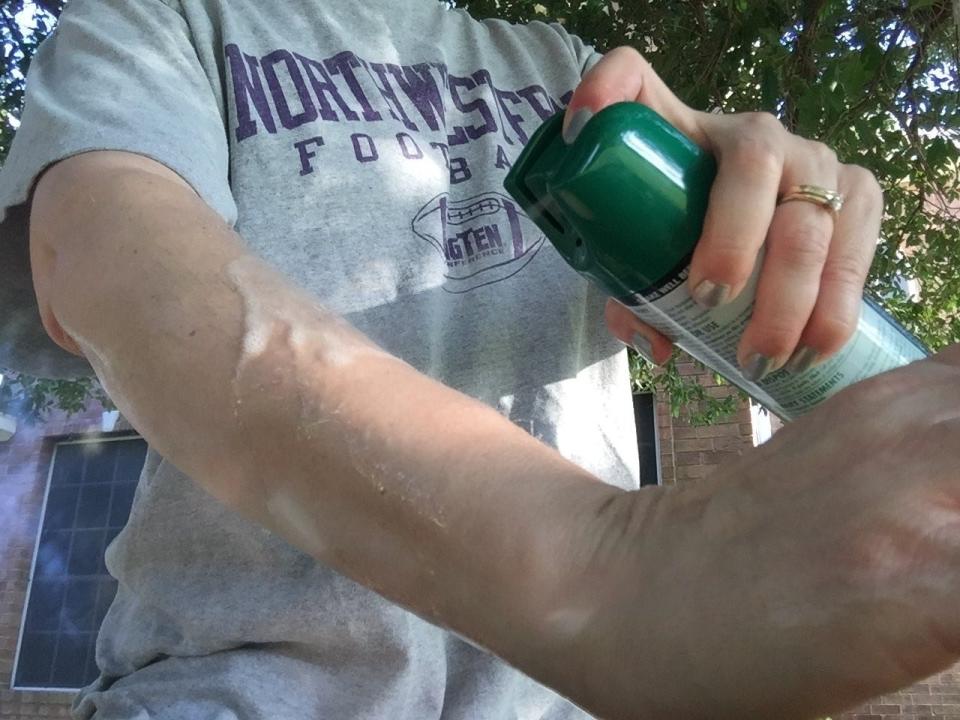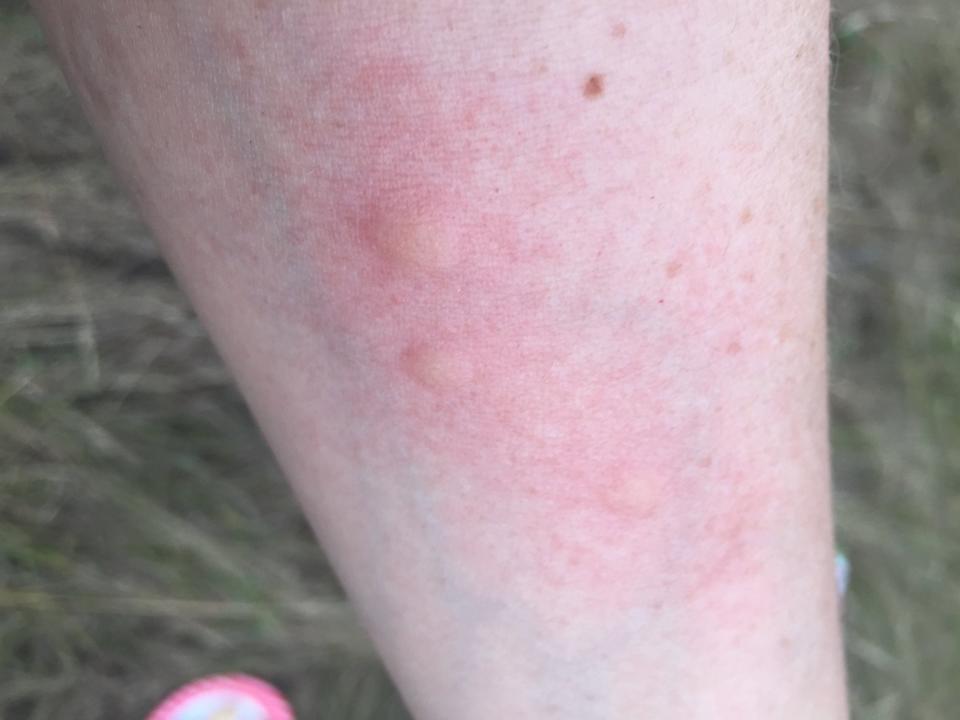Mosquito season is here. What you can do to avoid getting bitten, rid your yard of them
Mosquitoes are here. Are you itchy yet?
Austin Public Health is warning of the threat of the flying, biting insects as the weather heats up.
“I know many are excited to be spending time outdoors for the next several months. Take a few steps to make sure you’re celebrating safely,” said Dr. Desmar Walkes, the Austin-Travis County health authority. “Clearing out standing water, using repellent, and wearing long sleeves and pants will help keep the buzz away.”

How can you avoid mosquito bites?
Mosquitoes love some people more than others. They love people who exhale more carbon dioxide, are sweatier, have certain pheromones, have a warmer body temperature and have Type O-positive blood.
Mosquitoes' prime dining times are dawn and dusk. That doesn't mean you won't see them in the heat of the day, they just aren't as prevalent.
During peak times, though, you'll want to make sure to put on your armor — repellent, long sleeves and long pants. Lighter-colored clothing also is better for not attracting mosquitoes. Make that clothing lighter weight to deal with summer heat, but know that mosquitoes can get their proboscis into holes in the clothing.
More tips: Feeling itchy? Five things to do to make things better during mosquito season

What about insect repellent?
When we tested 16 insect repellents, some with DEET, some with all-natural ingredients, we confirmed that the more DEET, the better they generally worked. Wristbands and wearable fans didn't work as well.
DEET products can be used on anyone 2 months or older.
Products with lemon eucalyptus oil should not be used on kids younger than 3 years old unless it has less than 30% lemon eucalyptus oil.
Kids younger than 10 should not apply repellent themselves. Instead of spraying it directly on young kids, spray it into your hands and then rub it into their skin. The same technique is true for faces of all ages.
Avoid spraying in eyes, noses, mouths and ears.
You can spray exposed skin and clothing, but do not spray underneath clothing.
Avoid open wounds and cuts, and avoid overspraying.
You need only light coverage.
Spray repellent outside rather than inside and not near food.
Avoid inhaling these sprays. Wash your hands after applying repellents.
After using a repellent, wash it off when you're done for the day and change out of the clothes you sprayed.
The Environmental Protection Agency regulates products that have these ingredients:
DEET.
Picaridin (known as KBR 3023 and icaridin outside the U.S.).
IR3535.
Oil of lemon eucalyptus (OLE).
Para-menthane-diol (PMD).
2-undecanone.
On epa.gov/insect-repellents/find-repellent-right-you, you can find repellents regulated by the EPA and considered safe for humans.
Bite protection: How to avoid mosquito, ant bites, bee stings and how to treat them when they happen
How can you get rid of mosquitoes in your yard?
Dump out any source of standing water.
Regularly clean out anything that needs to have water, such as a bird bath. Use mosquito dunks or mosquito fish in ponds to eat the mosquito larvae. Make sure rain barrels are covered.
Move potted plants indoors. Create drains in planter boxes to avoid standing water.
Look for drainage problems in your yard and fix them with a French drain.
Plant lemon balm, mint, chrysanthemums, marigolds, basil, garlic, eucalyptus, lavender, rosemary and lemongrass around your yard. Or use oils and candles with those scents to discourage mosquitoes.
Scatter coffee grounds in the soil wherever there have been drainage problems. They deprive the eggs in the soil of oxygen.
Install lights around the yard that mosquitoes don't like, such as LED lights, yellow bug lights or sodium lamps.
Use a fan or fans on the patio to discourage mosquitoes from flocking there.
Hire a professional service to treat your yard. Make sure the employees know whether you have pets or kids who crawl around in the yard.

What should you do if you are bitten by mosquitoes?
Most people bitten by mosquitoes don't get a disease, but they get itchy red bumps.
To control the itching, use an over-the-counter anti-itch cream, typically with 1% hydrocortisone in it. Spot-treat the area. Or you can create a paste using baking soda and water. Wash off the paste about 10 minutes after applying it. Also, try ice packs to reduce the redness and itchiness. A lotion with oatmeal or calamine can be soothing to the skin.
If you have a lot of bites and cream is not helping, try an antihistamine such as Zyrtec, Claritin or Benadryl.
What's the biggest threat from mosquitoes?
Mosquitoes carry all kinds of diseases such as malaria, Zika virus, dengue fever, West Nile virus, Chikungunya virus, yellow fever and encephalitis. The biggest threat in Central Texas is West Nile virus.
Last year Travis County had one case of West Nile, and six mosquito pools tested positive. The ZIP codes affected were 78759, 78754, 78723, 78721, 78704 and 78744. That first case in humans came later than in previous years — in mid-December, rather than summer.
Avoiding West Nile: Travis County officials confirm local case of West Nile virus
What are the symptoms of West Nile virus?
About 80% of people who contract West Nile virus have no symptoms. Most people who do develop symptoms have fever, headaches, joint pain, body aches, swollen lymph glands, vomiting, diarrhea or a rash. A blood test or a spinal fluid sample can confirm the cause.
About 1 in 150 people with West Nile virus become severely ill. Symptoms include severe headache, stiff neck, tremors, convulsions, coma, muscle weakness, vision loss, numbness or paralysis.
People who are 60 or older have the highest risk of severe illness, as well as people who have underlying medical conditions such as cancer, diabetes, high blood pressure or kidney disease, or who have had an organ transplant.
How is West Nile treated?
There is no vaccine for West Nile virus. Most people can use over-the-counter medications. In severe cases, hospitalization is needed.
Sources: Austin Public Health; the Centers for Disease Control and Prevention; the Environmental Protection Agency; Dr. Lisa Gaw, a pediatrician and the director at Texas Children’s Urgent Care Westgate; Dr. Albert Gros, the former chief medical officer at St. David’s South Austin Medical Center; Ryan Larsen, a civil engineer at storm water management company NDS Inc.
This article originally appeared on Austin American-Statesman: How to get rid of mosquitoes and avoid mosquito bites

